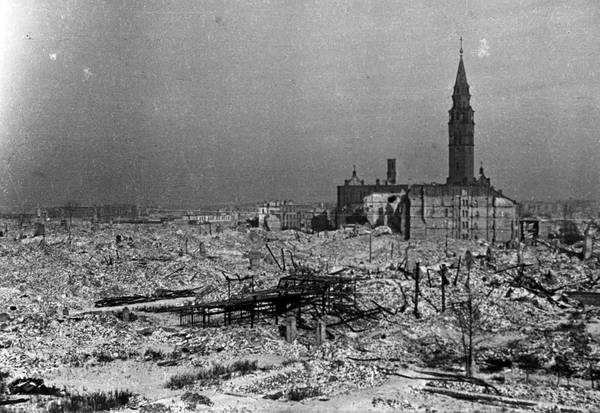Eighty years ago, the German-Polish conflict that led to WW
Invasion of Poland scheduled for August 26, but war began on 9/1
26 August, 13:03The USSR during the Nuremberg Trials will deny the genuineness of the microfilm of the German version and for decades denied the very existence of the secret protocol with which Hitler and Stalin shared some independent nations. The orthodox Marxist historiography, and especially the propaganda of the Left, to deny the Nazi-communist alliance continues today to provide a distorted interpretation of the facts, supporting the non-existence of the secret protocol (a copy of which, however, has re-emerged a few weeks ago from the Russian archives) and redesigning the Soviet aggression of 17 September as the reconquest of the eastern territories occupied by the Poles after the victory over the Russians in 1920 and the Treaty of Riga in 1921. There is only true that Stalin, since then, only waited the propitious moment to take revenge on Poland, which in 1939 will be called "the bastard of Versailles", and that moment had been provided at no cost by Hitler who had succeeded in detaching it from an alliance with France and Great Britain in anti-German function.
To deny the anti-historical Soviet thesis it is however sufficient to read the intervention of Stalin on the Politburo of 19 August, which oriented towards the stipulation of the Ribbentrop-Molotov Pact. The conflict planned by the Führer and the Wehrmacht strategists with the name of Fall Weiss (White Case), should have exploded on August 26th, precisely because the Oberkommando der Wehrmacht had imposed September 1 as the deadline for not having unfavorable weather conditions for travel of the armored divisions that were supposed to inaugurate the Blitzkrieg on the Polish plains. But on August 25, two unforeseen but predictable events had prevented the attack: the signing of the Anglo-Polish mutual assistance pact, formalized in the afternoon, and the detachment of Mussolini's Italy from the hypothesis of immediately joining Hitler on the basis of provisions of the Steel Pact, signed on 22 May, which on 1 September would have been formalized with the "non-belligerency" formula.
And it was only due to a series of circumstances that the order to cancel the Fall Weiss managed to reach all the units mobilized along the German-Polish borders, on the night of the 25th. To impose on the public opinion the domesticated version of the responsibilities, in a crescendo of denunciations of Polish abuses and provocations, the Germans also had time to set up the theater of a fake attack on the radio station of Gleiwitz, elaborated by Reinhard Heydrich, by SS with Polish uniforms: a shooting, some corpses with the uniform of the Polish army (prisoners of the concentration camps previously executed) and a virulent anti-German announcement to microphones (which nobody could hear because Gleiwitz only repeated Radio Bratislava's signal: but no one had thought of this). For "reaction" at 4.45 a cannon shot of the old battleship in courtesy visit to the Free City followed the slogan "the grandmother is dead", with the attack without declaration of war. Attacked Poland immediately informed Paris and London that the two allies had hoped for and promised military aid from binding treaties. It took three days to elaborate and forward the ultimatum, but when Britain and France kept their word, the Reich did not even reply by diplomatic means to the request, however unacceptable, to withdraw the victorious troops. The Poles would have been massacred until the end of September, awaiting an offensive from the west that would never have arrived. But from the east the divisions of Stalin would have reached an avalanche instead. On September 17, after several requests from the German side to take the promised part of the loot, the Georgian dictator considered the Polish fruit ripe and in turn invaded the unfortunate White Eagle country with the Red Army. It was only the first act of the European tragedy that would have ended only six years later, with 60 million deaths and atrocities of which humanity had no memory, and with the end of the leadership of the Old World. (ANSA).














